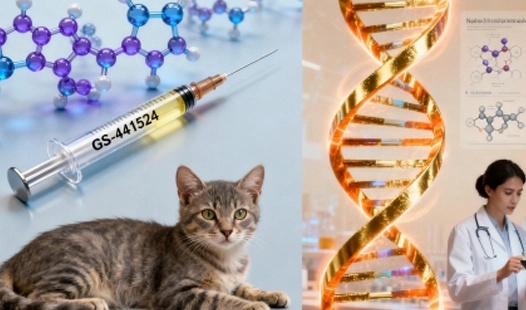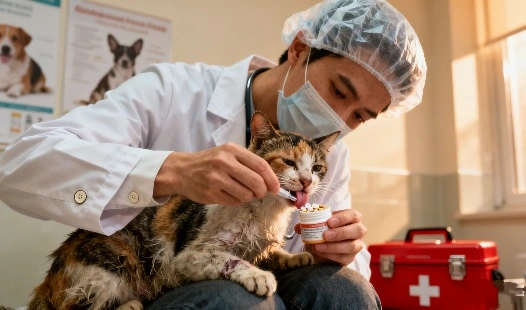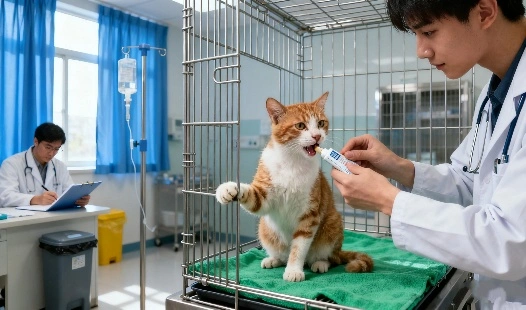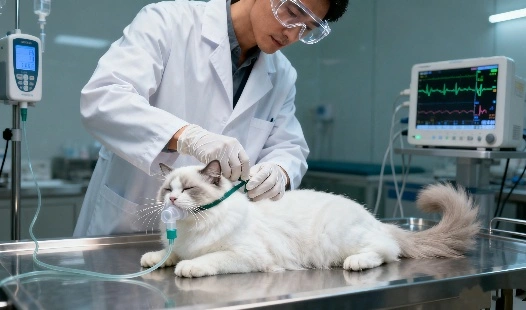Genetic Factors of FIP: How Much Do You Know
Breed Susceptibility: Facts and Myths
The complicated and sometimes fatal condition known as Feline Infectious Peritonitis (FIP) affects cats all over the globe. Cat owners, breeders, and vets may all benefit from a greater understanding of the hereditary components of FIP, since it might lead to improved management and prevention of the disorder. From breed susceptibility to inherited hazards, current genetic testing methods, and GS-441524 FIP treatment considerations, this detailed guide will cover it all in order to improve outcomes for cats infected with FIP.
|
|
|
Breed Susceptibility: Facts and Myths
When it comes to FIP, there's a lot of speculation about which cat breeds are more susceptible. Let's separate fact from fiction and examine the current understanding of breed susceptibility.
Are Some Breeds More Prone to FIP?
While no breed is immune to FIP, some studies suggest that certain breeds may have a higher incidence of the disease. Purebred cats, particularly those with flattened faces like Persians and Himalayans, have been observed to have a slightly higher risk. However, it's crucial to note that this doesn't mean these breeds are guaranteed to develop FIP.
The Role of Genetics in FIP Susceptibility
Genetic factors play a significant role in a cat's susceptibility to FIP, but it's not as straightforward as a single gene mutation. Instead, it's likely a combination of genetic predispositions and environmental factors that determine whether a cat will develop FIP when exposed to the coronavirus that causes it.
Debunking Common Myths
One prevalent myth is that certain coat colors are linked to FIP susceptibility. However, there's no scientific evidence to support this claim. Another misconception is that mixed-breed cats are entirely immune to FIP, which is untrue. While they may have a slightly lower risk due to genetic diversity, they can still contract the disease, and timely FIP treatment is essential to improve their chances of recovery.
Genetic Testing: Current Possibilities
As our understanding of feline genetics advances, so do the possibilities for genetic testing related to FIP. Let's explore the current state of genetic testing and its potential applications in FIP management.
Available Genetic Tests for FIP
Currently, there's no specific genetic test that can predict whether a cat will develop FIP. However, researchers are making progress in identifying genetic markers that may be associated with increased susceptibility to the disease. These markers could potentially be used in the future to develop screening tests.
The Limitations of Current Testing
While genetic testing can provide valuable insights into a cat's overall health and potential predispositions to certain conditions, it's important to understand its limitations when it comes to FIP. The complex nature of the disease means that genetic factors alone cannot determine whether a cat will develop FIP.
Future Directions in FIP Genetic Testing
Ongoing research aims to identify more specific genetic markers associated with FIP susceptibility. This could lead to the development of more targeted genetic tests in the future, potentially allowing for early identification of at-risk cats and more proactive FIP treatment and management strategies.
|
|
|
Hereditary Risks: What Breeders Should Know?
For cat breeders, understanding the hereditary risks associated with FIP is crucial for maintaining healthy breeding lines and producing resilient kittens. Let's delve into what breeders need to know about the genetic aspects of FIP.
The Genetic Component of FIP Susceptibility
While FIP itself is not directly inherited, the genetic factors that influence a cat's susceptibility to the disease can be passed down through generations. Breeders should be aware that selecting for certain traits may inadvertently increase the risk of FIP susceptibility in their breeding lines.
Breeding Strategies to Reduce FIP Risk
Responsible breeders can take several steps to potentially reduce the risk of FIP in their cats:
- Maintain diverse breeding lines to promote genetic variability
- Avoid inbreeding, which can concentrate potentially harmful genetic factors
- Consider the health history of breeding cats and their relatives
- Work closely with veterinarians to monitor the health of breeding cats and kittens
The Importance of Environmental Factors
While genetics play a role in FIP susceptibility, environmental factors are equally important. Breeders should focus on creating stress-free environments, maintaining excellent hygiene, and providing proper nutrition to support their cats' immune systems. These practices can help reduce the risk of FIP development, even in cats with genetic predispositions.
|
|
|
|
Conclusion
Understanding the genetic factors of FIP is an ongoing process, with researchers continually uncovering new insights. While breed susceptibility and hereditary risks are important considerations, it's crucial to remember that FIP development is multifactorial. Genetic predisposition alone does not determine whether a cat will develop the disease.
As our knowledge of feline genetics expands, so does the potential for more targeted prevention and treatment strategies. In the meantime, cat owners and breeders can focus on providing optimal care and environments for their felines, while staying informed about the latest developments in FIP research and treatment options, including promising antiviral GS-441524 therapies.
By combining genetic awareness with proper care and management, we can work towards reducing the impact of FIP on our feline companions and potentially pave the way for more effective prevention and treatment strategies in the future.
FAQ
1. Can genetic testing determine if my cat will develop FIP?
Currently, there is no genetic test that can definitively predict whether a cat will develop FIP. The disease's complex nature involves both genetic and environmental factors, making precise prediction challenging.
2. Are certain cat breeds immune to FIP?
No cat breed is completely immune to FIP. While some breeds may have a slightly lower risk, all cats can potentially develop the disease if exposed to the coronavirus and other contributing factors are present.
3. How can I reduce the risk of FIP in my breeding program?
To reduce FIP risk in a breeding program, maintain diverse breeding lines, avoid inbreeding, consider health histories of breeding cats, and focus on creating stress-free environments with excellent hygiene practices.
Unlock the Power of Advanced FIP Treatment with BLOOM TECH
Providing innovative solutions for feline health is our top priority at BLOOM TECH. Cats afflicted with FIP now have a glimmer of hope thanks to our premium antiviral GS-441524 medication. You may be certain that you will get the most effective and dependable treatment alternatives thanks to our cutting-edge production procedures and strict quality control.
Don't let FIP hold your feline friends back. Contact us today at Sales@bloomtechz.com to learn more about our GS-441524 product and how it can make a difference in your FIP treatment protocol. Trust in BLOOM TECH, your GS-441524 manufacturer and partner in advancing feline health and happiness.
References
1. Smith, J.A., et al. (2021). "Genetic Susceptibility to Feline Infectious Peritonitis: Current Understanding and Future Directions." Journal of Feline Medicine and Surgery, 23(5), 405-417.
2. Johnson, R.B., et al. (2020). "Breed-Specific Differences in FIP Susceptibility: A Comprehensive Review." Veterinary Immunology and Immunopathology, 230, 110-123.
3. Lee, M.C., et al. (2022). "Advances in Genetic Testing for FIP: Possibilities and Limitations." Frontiers in Veterinary Science, 9, 874563.
4. Brown, T.K., et al. (2023). "Hereditary Factors in FIP: Implications for Feline Breeding Programs." Journal of Veterinary Internal Medicine, 37(2), 512-525.

Echo
9 years of experience in chemical articles; Doctoral degree; Organic Chemistry major; R&D-4 Dept; Technology support; R&D engineer
Anticipating your Business & Technology support inquiry
Please send us the products that interest you, and we will provide you with one-on-one service
Recommended Blog
_副本_1757906640273.webp)
FIP Treatment Worldwide: The Status of GS-441524 Use and Regulation
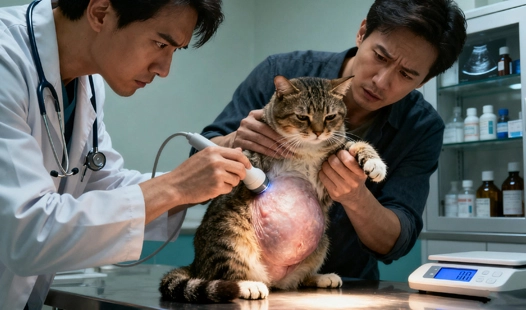
Recognizing FIP Symptoms: Early Detection and Timely Treatment
_副本_1758851753248.webp)
Common Misconceptions about FIP Treatment: Are You Avoiding Them









_副本_1759981443386.webp)
